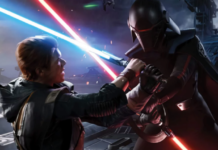Update: Activision confirmed that this system has not been implemented into any of their games at this time. That's not to say that it won't ever be implemented, though. You can view Activision's statement along with the orginal story below.
"This was an exploratory patent filed in 2015 by an R&D team working independently from our game studios. It has not been implemented in-game."
Original Story:
Over the last few years, players have seen the rise of a business model called microtransactions. This is a way for publishers and developers to make money off their game even after you've purchased it. These are usually really cheap in-game incentives such as in-game currency that can be used to help you buy items faster or some sort of boost so you don't have to work as hard or devote as much time to getting really good and powerful in a game.
Some publishers have gotten a bit carried away and started implementing them in ways that hurt the game. A game could make it so it's harder to earn an item that is easily obtained through microtransactions, encouraging you to buy it, or it could be added into a single player game where it's generally seen as unnecessary. Whatever the matter is, microtransactions are very present in modern gaming.
One publisher benefiting from the model is Activision, the publisher of some of the biggest franchises out there such as Call of Duty and Destiny. They made over $3.6 billion off of microtransactions alone in 2016 but that's simply not enough for them.
Rolling Stone discovered that Activision filed a patent in 2015 that would allow them to arrange matchmaking in online games so that a generally unskilled player would get matched with a much more skilled and experienced opponent, creating an unfair disadvantage. If their strategy is successful, it'll encourage the weaker player to purchase microtransactions to obtain more powerful gear. The patent was granted by the US Patent and Trademark Office today, October 17th, 2017.
The patent goes into detail on just how they can use their system to profit off of arranged matches.
"For example, in one implementation, the system may include a microtransaction engine that arranges matches to influence game-related purchases," according to the patent. "For instance, the microtransaction engine may match a more expert/marquee player with a junior player to encourage the junior player to make game-related purchases of items possessed/used by the marquee player. A junior player may wish to emulate the marquee player by obtaining weapons or other items used by the marquee player."
Essentially, they're setting up a skinny nerd to fight Mike Tyson in a boxing match and then after the nerd inevitably gets his ear chewed off or gets knocked out, they go to him in the locker room and offer to sell him performance enhancement drugs so he can fight like Tyson.
"In a particular example, the junior player may wish to become an expert sniper in a game (e.g., as determined from the player profile)," according to the patent. "The microtransaction engine may match the junior player with a player that is a highly skilled sniper in the game. In this manner, the junior player may be encouraged to make game-related purchases such as a rifle or other item used by the marquee player. "
If the player does then purchase a microtransaction item, the game may even put them into games with weaker players or a scenario which makes good use of the item so they can wreck shop and feel more powerful.
"Doing so may enhance a level of enjoyment by the player for the game-related purchase, which may encourage future purchases," according to the patent. "For example, if the player purchased a particular weapon, the microtransaction engine may match the player in a gameplay session in which the particular weapon is highly effective, giving the player an impression that the particular weapon was a good purchase. This may encourage the player to make future purchases to achieve similar gameplay results."
With all of the microtransaction controversies over the last few months, this likely won't go over well with players. It's unclear what games this will be used in but Activision's next title is the highly anticipated Call of Duty: WWII, a series which is no stranger to the in-app purchases business model.
Call of Duty: WWII releases on Xbox One, PlayStation 4, and PC on November 3rd.







